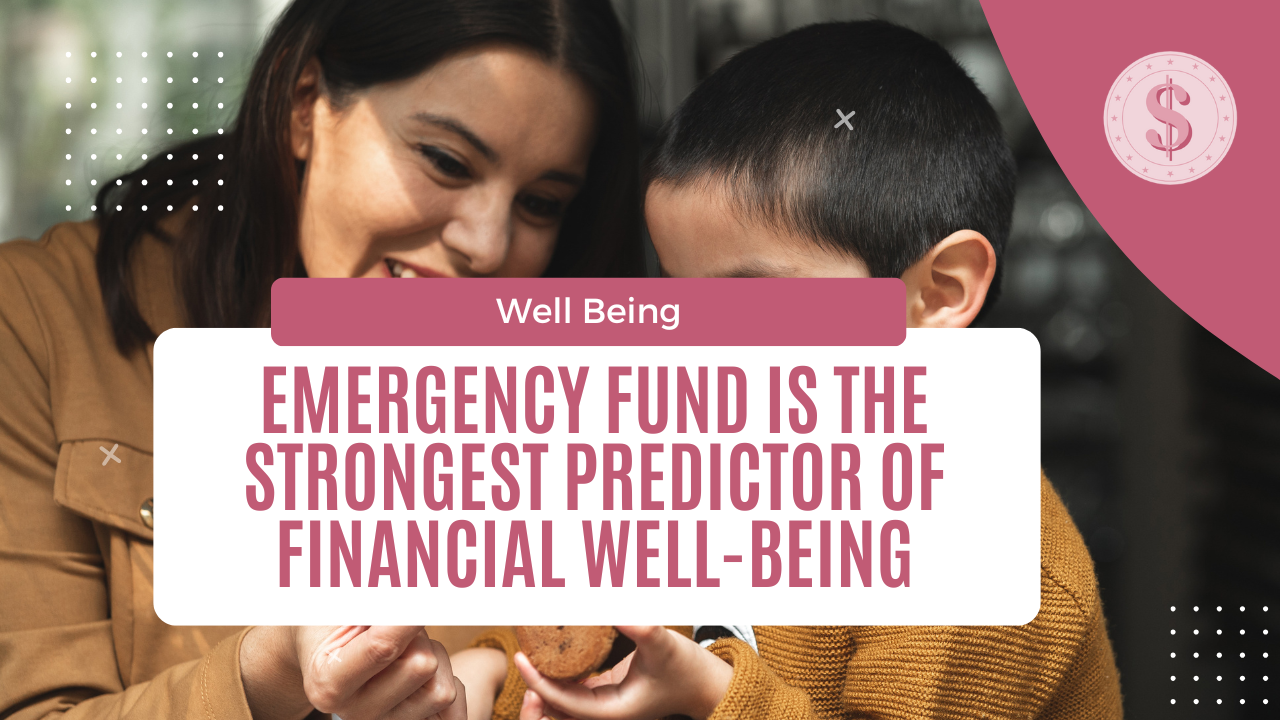Research Confirms an Emergency Fund Is the Strongest Predictor of Financial Well-Being
While the official Emergency Fund Challenge we ran during Sorted’s Money Month in August might be over, the conversation about emergency funds is far from done.
This year’s Money Month challenge was about more than saving a few dollars here and there. It was about giving women a financial safety net, and the research is clear: having even a small emergency fund can be life-changing.
What the research shows
A 2025 Vanguard study in the U.S. found that emergency savings are the single strongest predictor of financial well-being. Just having $2,000 tucked away was linked to a 21% increase in financial well-being. Women with that buffer reported less stress, spent fewer hours worrying about money, and were less distracted at work.
Compare that to those with no savings, who spent more than 7 hours a week stressing about money. With an emergency fund, that number halved.
Yes, this study is American — but the lessons hold true here in Aotearoa. We all know the mental load of trying to juggle bills, groceries, kids, and unexpected costs. Having a cushion means you’re not constantly living on the edge.
Why it matters for women in New Zealand
For women in New Zealand, the stakes can be even higher. A recent report from Good Shepherd found that 15% of partnered women experience economic abuse, and that it costs around $10,000 upfront to safely leave an abusive relationship. Without savings, too many women feel trapped — not because they want to stay, but because they can’t afford to go.
Emergency funds won’t solve everything, but they can be a powerful start. Even a few hundred dollars can mean paying the power bill without going into debt, covering an urgent dentist appointment, or having the petrol money to get you and your kids somewhere safe.
The real gift of an emergency fund
At its core, an emergency fund buys peace of mind. It gives you choices. It means when life throws you a curveball — and it will, about once a year on average — you’re not relying on credit cards, payday lenders, or someone else’s permission to get through it.
It’s not about having the “perfect” number saved. It’s about starting. Whether you put aside $2 a week or $20, every single dollar you save builds that buffer — and builds your confidence.
You can still start today
If you joined the Emergency Fund Challenge in August — I’m so thrilled for you! If you didn’t, the good news is you can start anytime. Your first $100, $200, or $2,000 will all make a meaningful difference.
👉 Ready to start your own safety net? Join over 500 other women who have done the Emergency Fund Challenge. You don’t need to wait until next August — you can begin now, with whatever you’ve got.

